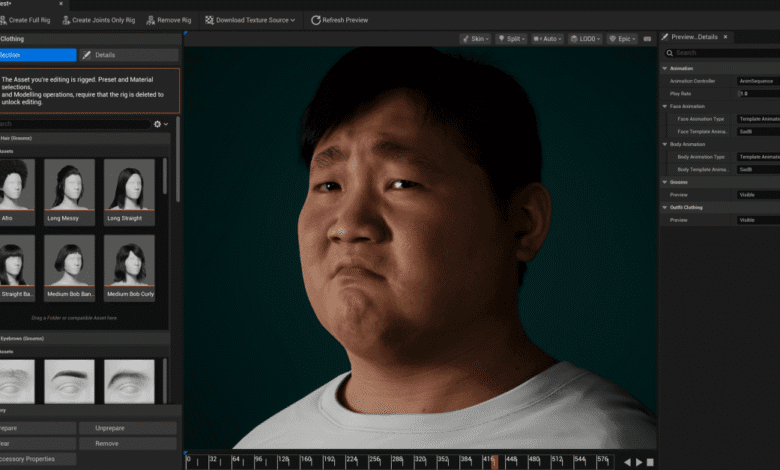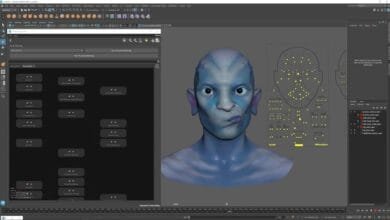Epic Simplifies MetaHuman Creation for Developers

▼ Summary
– Epic Games has integrated its MetaHuman Creator directly into Unreal Engine 5.6, making it easier for developers to use hyperrealistic characters.
– Developers can now create detailed faces and bodies for MetaHumans using fine-tuned parameters in their projects.
– MetaHumans created by developers can be sold on Epic’s Fab marketplace for use in other games or applications.
– Epic demonstrated real-time character animation using MetaHuman tools and a consumer webcam to capture facial movements.
– New licensing options allow MetaHumans to be used in rival engines like Unity and Godot, as well as creative software like Maya and Blender.
Epic Games has significantly streamlined the process for developers to integrate its cutting-edge MetaHuman technology into their projects. The company recently unveiled major updates during its State of Unreal presentation, embedding the MetaHuman Creator directly into Unreal Engine 5.6 for seamless access. This enhancement eliminates previous workflow barriers, allowing creators to generate hyperrealistic digital humans with unprecedented ease.
Beyond facial customization, Epic now extends its sophisticated authoring tools to body creation. Developers can fine-tune both facial and physical attributes, crafting characters with precise anatomical details tailored for games or interactive applications. Additionally, these custom MetaHumans can be shared or monetized through Epic’s Fab marketplace, opening new opportunities for asset reuse across different projects.
During the demonstration, Epic showcased the tool’s real-time animation capabilities, leveraging nothing more than a standard webcam to capture an actor’s expressions and translate them onto a digital character. The result was strikingly fluid, highlighting the technology’s potential for indie developers and large studios alike.
In a move that broadens accessibility, Epic introduced flexible licensing options permitting MetaHuman integration with competing engines like Unity and Godot, as well as industry-standard creative software such as Maya, Houdini, and Blender. This strategic shift ensures creators aren’t locked into Unreal Engine, fostering wider adoption across the development ecosystem. The updates mark a significant leap forward in democratizing high-fidelity character creation, empowering developers to focus on storytelling and innovation rather than technical hurdles.
(Source: The Verge)


